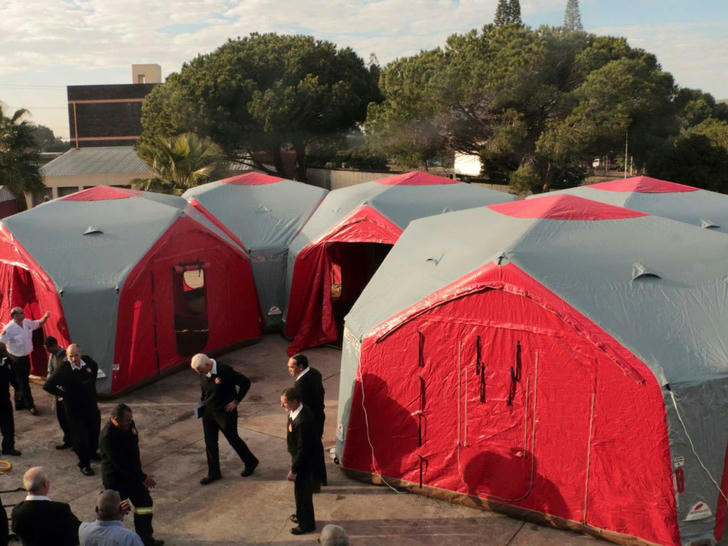The Salvation Army’s Emergency Shelters: A Lifeline for Those in Crisis
The Salvation Army’s emergency shelters are a critical lifeline for those facing the harsh reality of homelessness. More than just a place to sleep, these shelters provide safety, dignity, and a path to stability to individuals and families in dire need.

Emergency Shelters: Homeless individuals, youth, seniors, people with disabilities, and vulnerable groups
The Salvation Army’s emergency shelters provide vital support to a variety of vulnerable populations, each with unique needs:
People experiencing homelessnesswho require immediate safety and shelter from the elements.
vulnerable youthwho may be unaccompanied or aging out of foster care, needing specialized programs that offer protection, education, and guidance.
Seniorswho face increased risks due to age-related health issues and isolation, receiving care tailored to their physical and emotional well-being.
Individuals with disabilitieswho often encounter additional barriers to housing and services, benefiting from accessible facilities and targeted support.
Other at-risk groupsincluding survivors of domestic violence, veterans, and those struggling with mental health or substance use disorders, who require comprehensive, trauma-informed care to regain stability.
How The Salvation Army Serve about emergency shelters
Homeless Shelters
The Salvation Army offers emergency shelters year-round, providing beds, meals, hygiene, and safety for homeless men, women, and children. During COVID-19, shelters adapted to meet new challenges and keep communities supported.
Transitional Housing
The Salvation Army transitional housing helps people move from shelters to stable homes by offering case management, job training, childcare, and counseling. The Salvation Army often work with local partners to meet community needs.
Permanent Supportive Housing
The Salvation Army provide long-term housing for seniors, families, and vulnerable adults. Facilities like Booth Manor Senior Housing in Minneapolis offer safe living with social and emotional support to reduce loneliness.
Life Skills Resources
The Salvation Army also offer education, counseling, and job services to help clients become self-sufficient. Programs like Home Sweet Home in Texas support people in maintaining housing and managing finances after moving in.
National Support: A Robust, Nationwide Safety Net
The Salvation Army has a vast presence across the United States, with emergency shelters and service centers in nearly every state.
California: Multiple emergency shelters in Los Angeles, San Francisco, San Diego, and other cities serve diverse populations with specialized programs.
New York: Shelters and service centers in New York City and surrounding areas provide critical support to urban homeless populations.
Texas: The Salvation Army operates numerous shelters across major cities such as Dallas, Houston, Austin, and San Antonio, offering comprehensive emergency and transitional housing.
Florida: Facilities in Miami, Orlando, Tampa, and other locations focus on serving families, veterans, and individuals in crisis.
Illinois: Chicago and surrounding areas host several shelters with programs tailored for youth, women, and men.
Ohio: Emergency shelters in Columbus, Cleveland, and Cincinnati provide meals, housing, and case management services.
Pennsylvania: Shelters in Philadelphia and Pittsburgh support individuals facing homelessness with a wide range of services.
Michigan: Detroit and other cities feature Salvation Army shelters focused on recovery and reintegration.
Georgia: Atlanta and other metro areas provide shelter and programs for homeless families and vulnerable adults.
Washington: Seattle and other locations offer emergency shelter combined with mental health and substance use support.
To apply for Salvation Army housing:
Choose the program (emergency, transitional, or permanent housing).
Find your nearest Salvation Army via their website.
Contact them with your ID, proof of income, and housing need details.
Complete the intake form and interview.
Follow up for waitlist status or referrals if no immediate spot is available.
Q&A: What People Commonly Ask
Q1: Who is eligible for emergency shelter services?
Age: To provide services more tailored to the individual's needs and safety, some facilities have age restrictions (e.g., minors, teenagers, seniors, etc.).
Family Situation: Some shelters specifically cater to pregnant women or parents with children.
Q2: What kind of necessities are provided?
Shelters typically offer meals, hygiene items, clothing, and shelter, with additional resources like child development or mental health support depending on the program.
Q3: What happens after leaving the emergency shelter?
Residents are often transitioned into transitional or permanent supportive housing, with continued aid through case management, job support, and counseling.
Q4: Are these shelters open year-round and adaptable in emergencies?
Yes. Shelters operate 24/7 year-round, including during disasters or pandemics. The Salvation Army also scales up in crisis, opening or repurposing facilities as needed.
Conclusion
The Salvation Army’s emergency shelters are far more than a temporary refuge—they are lifelines offering comprehensive, compassionate, and tailored support to individuals in crisis. With a broad national presence, robust prevention efforts, and programs designed around real, evolving needs, these shelters embody hope, dignity, and the journey toward lasting stability.
